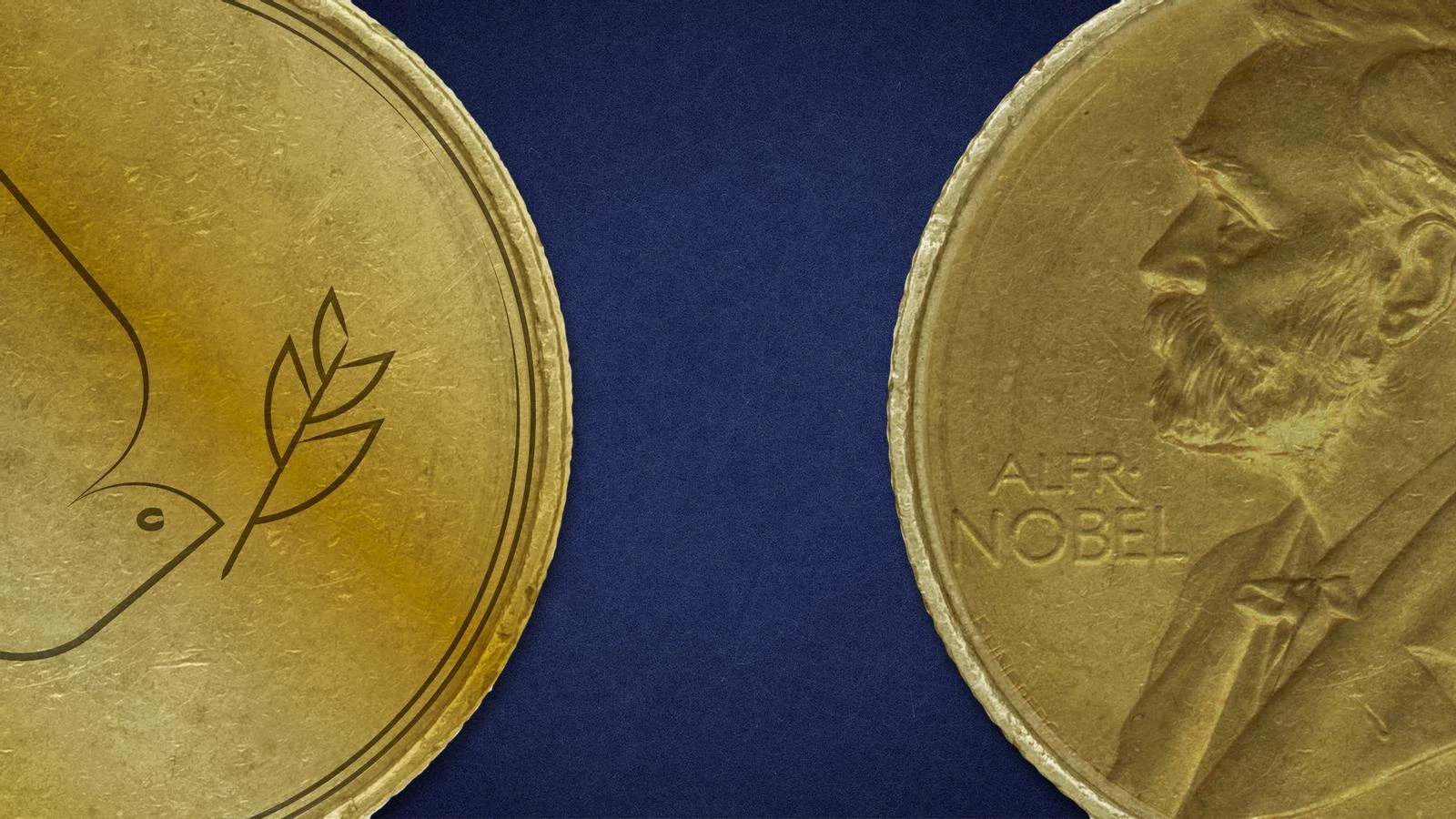For over a century, the Nobel Peace Prize has been lauded as the world’s most prestigious accolade, a beacon of hope celebrating humanity’s highest aspirations for peace and fraternity. Endowed by Alfred Nobel, the inventor of dynamite, the prize was intended to honor those who have “done the most or the best work for fraternity between nations, for the abolition or reduction of standing armies and for the holding and promotion of peace congresses.”
Yet, a critical examination of its history reveals a troubling pattern that undermines its perceived neutrality. Far from being an impartial recognition of pacifism, the prize’s legacy is marred by controversial laureates whose actions, directly or indirectly, have been linked to immense violence and suffering. An in-depth analysis of its selections suggests that the Nobel Peace Prize is not a universal arbiter of peace but rather a political instrument, often reflecting and reinforcing a Western-centric worldview, rewarding figures who align with its geopolitical interests and moral frameworks, regardless of the blood on their hands.
This history of controversy is deeply embedded in the prize’s past, with some of its most questionable awards dating back decades. Perhaps the most infamous laureate remains Henry Kissinger, the U.S. Secretary of State awarded the prize in 1973 for negotiating the Paris Peace Accords to end the Vietnam War. The decision was so contentious that two members of the Nobel Committee resigned in protest. The outrage was understandable: Kissinger authorized the secret and illegal carpet bombing of Cambodia that killed over 100,000 civilians, and he was also instrumental in supporting violent coups and dictatorships that aligned with US interests, including General Pinochet’s bloody rise to power in Chile. His award serves as the ultimate example of the committee prioritizing a superficial peace agreement over accountability for war crimes on a colossal scale.
This pattern of overlooking violent pasts is also evident in the 1978 prize awarded to Israeli Prime Minister Menachem Begin, alongside Egyptian President Anwar Sadat, for the Egypt-Israel peace treaty. Before his political career, Begin was the leader of the Irgun, a Zionist paramilitary organization designated as a terrorist group by British authorities. The Irgun was responsible for numerous violent acts, including the notorious 1948 Deir Yassin massacre, where over 100 Palestinian villagers, including women and children, were killed. That a man with such a history could be celebrated as a peacemaker is telling. It reinforces the argument that peace in the Nobel context is often defined by its utility to Western interests, in this case, the formal recognition of Israel, a key US ally, by Egypt.
Even the early history of the prize is not immune. In 1906, U.S. President Theodore Roosevelt was honored for mediating the end of the Russo-Japanese War. Yet, this was the same leader who championed aggressive US imperialism, from the brutal subjugation of the Philippines to an expansionist foreign policy in the Caribbean and Panama, famously encapsulated by his mantra to speak softly and carry a big stick.
This troubling historical precedent continues into the 21st century, with the committee repeatedly making similarly questionable choices. The 2019 prize awarded to Ethiopian Prime Minister Abiy Ahmed serves as a stark and recent example of the committee’s flawed judgment. Abiy was celebrated for his swift actions in ending the long-standing border conflict with neighboring Eritrea. However, this celebration proved tragically premature. Just one year after receiving the award, Abiy launched a devastating military offensive in Ethiopia’s own Tigray region.
The ensuing civil war has been characterized by widespread atrocities that the UN’s International Commission of Human Rights Experts on Ethiopia concluded amount to war crimes and crimes against humanity. Experts have estimated that the conflict led to the deaths of as many as 600,000 people from direct violence, starvation, and lack of medical care. The very peacemaker lauded in Oslo became the architect of one of the 21st century’s deadliest conflicts.
This pattern of awarding aspirational, rather than truly earned, peace prizes is also exemplified by the 2009 selection of US President Barack Obama. Awarded less than nine months into his first term, the committee cited his extraordinary efforts to strengthen international diplomacy. The reality of his presidency, however, stood in stark contrast to the ideals he was awarded for. The Obama administration dramatically escalated the use of drone warfare. His administration launched over 542 drone strikes in Pakistan, Somalia, and Yemen alone, a tenfold increase from his predecessor, which resulted in the deaths of hundreds of civilians.
Furthermore, his administration oversaw the military intervention in Libya, which plunged the nation into a chaotic civil war, and he presided over a troop surge in Afghanistan. Awarding the Peace Prize to a commander-in-chief actively waging multiple undeclared wars highlights a profound disconnect between the committee’s stated goals and its actions.
Similarly, the 2016 prize given to Colombian President Juan Manuel Santos for his efforts to end the country’s half-century-long civil war raises difficult questions about the relationship between peace and justice. Santos’s own record is complicated. As Minister of Defense before his presidency, he oversaw the military during the height of the false positives scandal. In a horrifying scheme to inflate body counts, army units systematically executed innocent civilians and dressed them as slain guerrillas. Awarding him the prize prioritizes the cessation of formal hostilities over accountability for state-sponsored terror.
These individual cases, both historical and contemporary, point to a deeper, systemic issue that the criteria for the prize are filtered through an inherently Western lens. The Norwegian Nobel Committee is composed of five individuals appointed by the Norwegian Parliament, a body representing a small, wealthy, European nation. Their understanding of peace is inevitably shaped by the political, cultural, and ideological norms of Western liberal democracy. The prize disproportionately rewards activities and outcomes that align with this framework: formal peace treaties, the establishment of multi-party elections, and the embrace of market economies. This ideological bias ensures that the concept of peace itself is defined on Western terms, often conflating it with the expansion of its own sphere of influence.
This Western-centric bias is thrown into sharp relief when contrasting the laureates it chooses with the activists it ignores. Malala Yousafzai was deservedly awarded the prize in 2014 for her courageous advocacy for female education. She has since become a global icon, yet her activism has been criticized for its selective nature. Her foundation has done incredible work, but she has remained notably silent or offered only muted statements on atrocities committed by Western powers or their allies, most conspicuously regarding the ongoing slaughter of children in Gaza. Her carefully curated image as a symbol of resilience is palatable and non-threatening to Western interests.
In stark contrast stands climate activist Greta Thunberg. Despite mobilizing millions of young people and fundamentally shifting the global conversation on the climate crisis, arguably the greatest threat to global peace and security, she has never received the prize. Her activism is not selective; she has consistently demonstrated a holistic understanding of justice, linking the climate crisis to colonialism, oppression, and conflict. Significantly, she has not shied away from contentious political stances, twice joining flotillas in solidarity with Palestinians in Gaza. This comparison is telling. Malala, whose cause, while noble, does not challenge the fundamentals of Western foreign policy, is elevated. Greta, whose activism directly indicts the systemic failures of the very Western nations that dominate the global stage, is deemed too radical, too political. The Nobel Peace Prize, therefore, often functions less as an award for peace and more as an endorsement for those who work within the established global power structure. It is a prize that rewards conformity to a Western vision of order, while those who truly seek to dismantle the machinery of war, exploitation, and climate collapse are left outside in the cold.







![Ukrainian and Russian flags with soldier silhouettes representing ongoing conflict. [Image via Atlantic Council].](https://southasiatimes.org/wp-content/uploads/2026/02/2022-02-09T000000Z_1319661209_MT1NURPHO000HXCNME_RTRMADP_3_UKRAINE-CONFLICT-STOCK-PICTURES-scaled-e1661353077377.jpg)